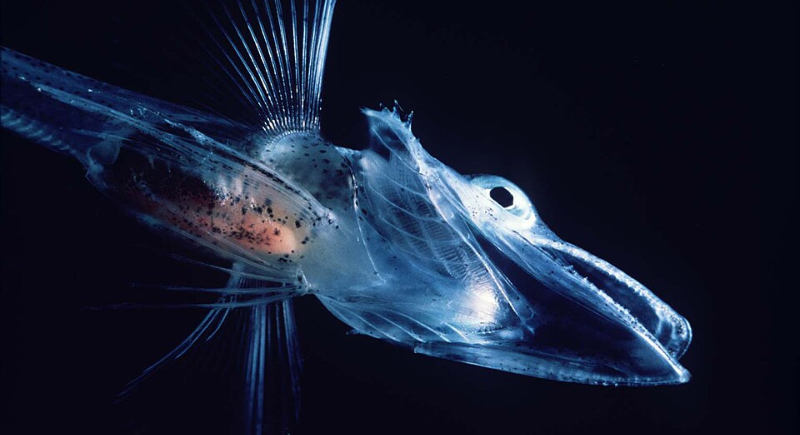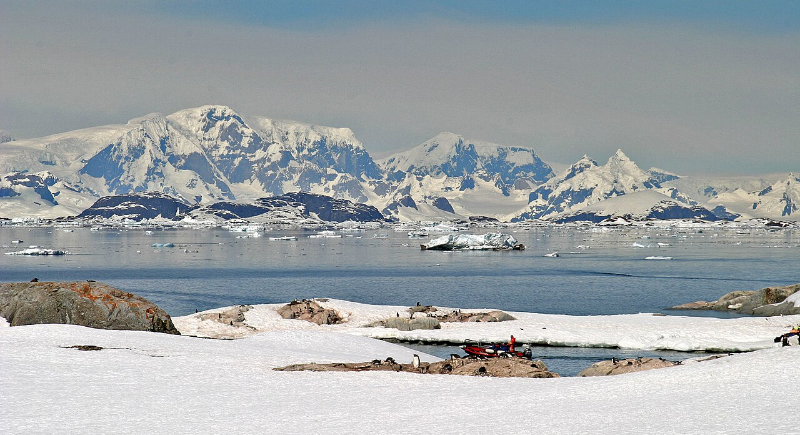These Fish Literally Defy the Laws of Biology to Survive in Freezing Water
Have you ever wondered how some life forms keep going in places so cold we’d call them frozen? Places humans wouldn’t dare venture into? Deep in the icy waters around Antarctica dwell fish that thrive under conditions so extreme they’d usually mean certain death. These creatures dodge death by freezing thanks to a mix of hard-wired biology and unexpected genetic twists. It’s just the kind of weird survival story that makes nature feel almost mischievous.
Staying Liquid When Everything Else Freezes
Let’s talk about the stars of this show: fish in the subzero seas around Antarctica (members of the group called notothenioids). Sea water there can hit about -1.9 °C (around 28.6 °F). Meanwhile, fish bodily fluids would normally crystallize at higher temperatures. It’s survival against the odds, and they pull it off by producing antifreeze glycoproteins (AFGPs) that prevent ice crystals from growing inside them. These proteins coat ice-nucleating points and block ice from forming the way it would in an unprotected body. The presence of such heavy protection allows these fish to live in waters that most animals couldn’t endure.
A Surprise Source for Their Superpower

Image via Wikimedia Commons/Uwe kils
Scientists once assumed the liver made these antifreeze proteins because the liver typically manufactures many blood proteins. But research shows that, at least in some of these fish, the pancreas and stomach play major roles in producing the antifreeze glycoproteins. While that’s perhaps not the most glamorous detail, it flips the expectation and shows how evolution finds odd routes. It means these fish didn’t just tweak an existing system; they repurposed organs in ways we didn’t expect.
Furthermore, these fish also cheat biology in another fascinating way. In many species of Antarctic notothenioids, red blood cells play little to no role in survival because some of them don’t have any red blood cells or hemoglobin at all. That’s right! Entire fish species, called icefish (part of the same larger Antarctic group), live without the red blood pigment that carries oxygen in nearly all vertebrates.
Here’s how that works: oxygen dissolves more readily in cold water, so these fish can absorb enough directly through their skin and plasma. Without red blood cells, their blood is clear and less viscous, which means it flows more easily through their bodies even in freezing temperatures. For the species that still have red blood cells, those cells function normally but are often fewer in number to keep the blood thinner and flowing smoothly. This adaptation prevents sluggish circulation in near-freezing water, where thicker blood could be a liability.
Evolution’s Quick Turn-Around for Ice Survival

Image via Wikimedia Commons/W. Bulach
The timing is astonishing. Genetic studies suggest the AFGP trait in Antarctic fish emerged about five to 14 million years ago when the Southern Ocean cooled and ice started becoming a more permanent part of the environment. What makes this even more intriguing is that Arctic fish, like some cod species far away, evolved very similar antifreeze proteins independently through a totally different genetic path.
Fish surviving cold are very important for two big reasons. First, these fish form a foundation of the Southern Ocean ecosystem. If they hadn’t adapted, the whole food web, penguins, seals, and whales, would have faced a major shake-up. Second, their antifreeze proteins show how life finds ingenious chemical and genetic solutions. We often imagine adaptation as slow changes over eons, but here we see a fairly rapid response to climatic shift backed by biochemistry.
Here’s the part that nudges our imagination: the strategies of these fish offer more than just fishy trivia. They remind us that life can innovate under pressure, and genes can pivot in unexpected ways. When conditions shift, like the world cooling and ice spreading, nature doesn’t always wait for the “ideal” path. It repurposes what’s available. So next time you see a fish gliding through frigid water, remember: it’s not just surviving. It’s doing chemistry, evolution, climate control, and survival training all at once.